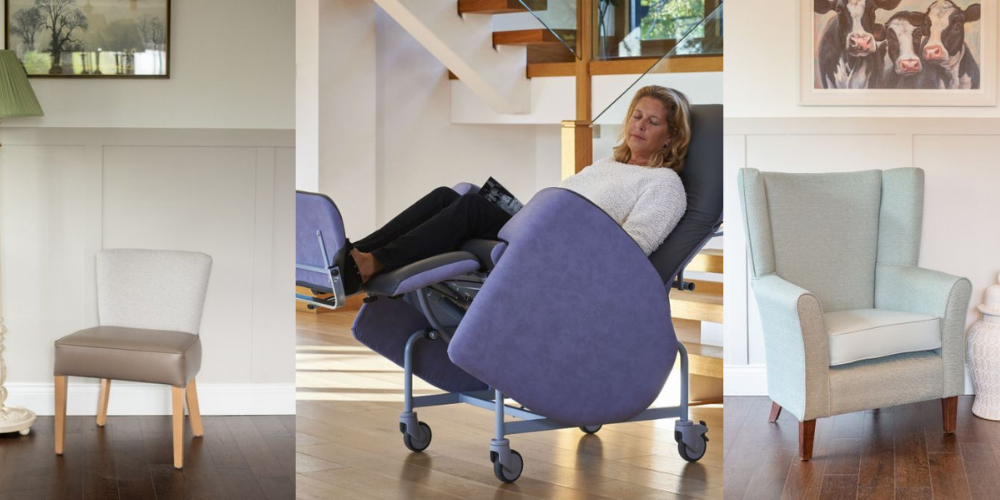The Perfect Care Home Lounge
Did you know that a recent study has shown that care home residents, on average, spend 50% of their time with no social interaction? It’s a startling fact that requires our care and attention. With the recent extended periods of isolation due to the pandemic, we believe it’s never been more important to create spaces that encourage participation and invite stimulative activities.
There are many factors to take into consideration when purchasing new care home lounge furniture: the number of residents usually in the space, the activities that take place within the room, and the aesthetic and ambience you wish to create within the room.
THE LAYOUT
A factor most often overlooked when considering lounge furniture is the layout of a room. Recent observations have proven that chairs are often placed around the outside of the room in care settings. Whilst this can give a sense of space, it often means that interaction is made more difficult, with residents feeling as though they have to shout across the room. It is no wonder that furniture in this arrangement is known as ‘wallflower furniture’!
It is widely believed and proven that intentional furniture placement really can promote social interaction and engagement between residents. Below are a few simple ideas to consider when next purchasing care home lounge chairs, or simply looking at a reorganisation of your current nursing home living room furniture.
One excellent way to provide different areas within one room is to arrange different types of chairs into clusters. By creating separate areas, with chairs facing one another, or in a circle fashion, residents will be given a choice of how they would like to spend their leisure time. Whether it be watching TV, reading beside a window, or having a more intimate conversation with friends, they will have access to a ‘zone’ which will accommodate their activity of choice. These options aren’t easily made possible with all of the chairs next to each other around the outside of a room. Remember to consider the number of residents participating in each of these activities, and place an appropriate number of chairs in each ‘zone’. For example, a TV area should include more chairs than small conversation areas.
Creating these zones is also helpful to residents living with dementia. Large open spaces can cause feelings of discomfort and worry, so by creating these ‘zones’, we can alleviate any distress by breaking up the space.
THE CHAIRS
A variety of styles of chairs should be mixed and matched around the room so that residents have a range of options in different areas. Different types of chairs are more suitable for different functions and tasks.
Whilst wings on high back chairs are great for supporting residents, they often provide an obstruction to the conversation when placed directly next to each other. Chairs with wings should be positioned at a slight angle toward each other to encourage conversation, and ensure residents have a full view of one another.
Medium back chairs are great for areas of activities, as they have a less obtrusive footprint, which will help in encouraging residents to engage. Higher back chairs can be excellent for TV areas, as they tend to be more comfortable for longer periods of sitting. Another notable option are 2 seaters. We often have these in our own homes, for the purpose of gathering with our closest friends and family- so why not extend this idea into a care home?
THE ACCESS
Another key factor in ensuring there are no restrictions in allowing your residents to gather is access. This ensures everyone, including those in wheelchairs or who need assistance with a walking aid, can be involved. We should always be allowing 1 – 1.2m gaps between chairs and along walkways to ensure any assistive equipment can manoeuvre and access safely.
We hope that this article has helped in educating your decisions whilst choosing care home lounge furniture. If you would like any further explanation, have any queries, or are considering a refurbishment of your own care home lounge, and would like a guiding hand, please don’t hesitate to reach out on 01743 440 011, or drop us a line at sales@berwickcare.co.uk - we’d love to help!

Sources:

